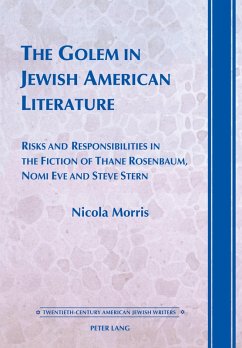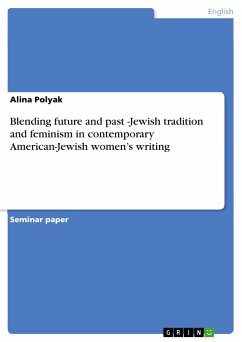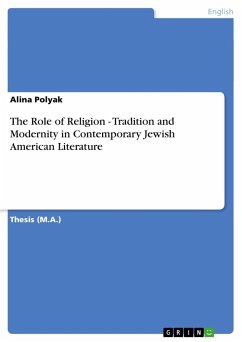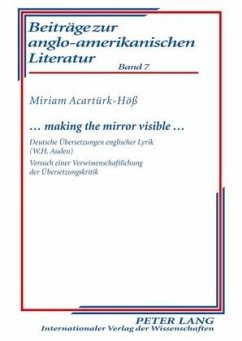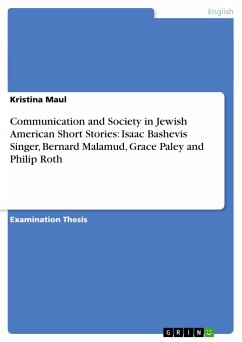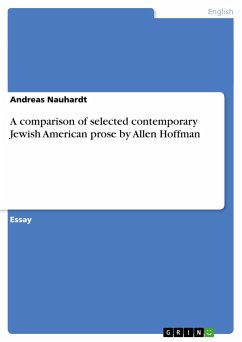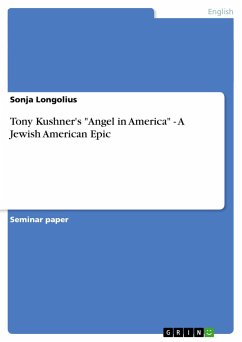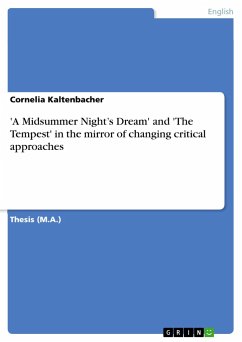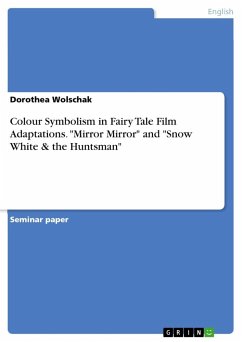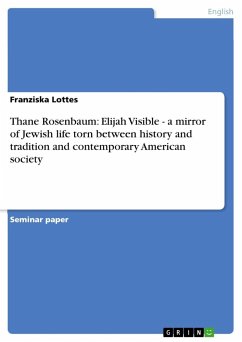
Thane Rosenbaum: Elijah Visible - a mirror of Jewish life torn between history and tradition and contemporary American society

PAYBACK Punkte
0 °P sammeln!
Seminar paper from the year 2008 in the subject American Studies - Literature, grade: 1, Martin Luther University, language: English, abstract: Introduction "He writes like he talks and talks like he writes" Although the cruelties people of Europe had to suffer from during the early decades of the 20th century, when Adolf Hitler began to establish his Nazi-regime, are part of a sad and dark chapter in German history, the aftermaths of the Rassengesetze, the war itself and the concentration camps are still shaking the minds of those who are faced with this issue during their studies, as well as...
Seminar paper from the year 2008 in the subject American Studies - Literature, grade: 1, Martin Luther University, language: English, abstract: Introduction "He writes like he talks and talks like he writes" Although the cruelties people of Europe had to suffer from during the early decades of the 20th century, when Adolf Hitler began to establish his Nazi-regime, are part of a sad and dark chapter in German history, the aftermaths of the Rassengesetze, the war itself and the concentration camps are still shaking the minds of those who are faced with this issue during their studies, as well as the memories and lives of the people which either had to live according to the ideologies of the Third Reich and experience the tortures and pain the Nazis had brought upon them, or belong to the younger generation of those people's descendants. Thane Rosenbaum himself is one of them, a member of the generation whose parents had been there, had to live during the Third Reich and had survived the Holocaust. His novel Elijah Visible treats the issue of Nazi-Germany, the concentration camps and the consequences of this brutal era of German politics and ideologies from a rather indirect Jewish point of view (for further explanation cf. 2.1). During the tenor of this work the author, Thane Rosenbaum, shall be introduced and his novel-in-stories Elijah Visible will be analyzed with the help of three selected short stories; the structure of the complete novel and connections between single stories will be illustrated. It is expounded in how far and in which manner the author's past and family background have influenced the (events described throughout the) stories and thus, which autobiographical elements can be found. The last chapter will lay the focus on Rosenbaum's language and style as well as the purpose of writing his novel. This work is written in American English. [...]




